What is a Cardiac Technician Career Overview
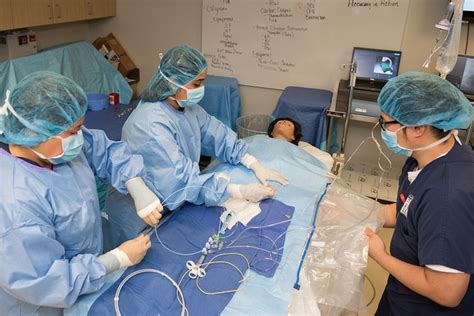
Cardiac Technician Career Overview

Are you passionate about healthcare and interested in a career that involves working closely with patients and medical professionals? A career as a cardiac technician, also known as a cardiovascular technologist or a cardiac sonographer, may be the perfect fit for you. In this article, we will provide an in-depth overview of the cardiac technician career, including job responsibilities, education and training requirements, salary ranges, and growth prospects.
Job Responsibilities

Cardiac technicians play a crucial role in the diagnosis and treatment of heart and blood vessel disorders. Their primary responsibilities include:
- Conducting non-invasive tests such as electrocardiograms (ECGs), echocardiograms, and stress tests to diagnose and monitor cardiovascular conditions
- Preparing patients for tests and procedures, explaining the procedures, and answering any questions they may have
- Operating and maintaining medical equipment such as ECG machines, ultrasound machines, and stress test equipment
- Analyzing test results and reporting any abnormalities to physicians
- Maintaining patient records and test results
- Assisting physicians with procedures such as cardiac catheterizations and angioplasties
Education and Training Requirements
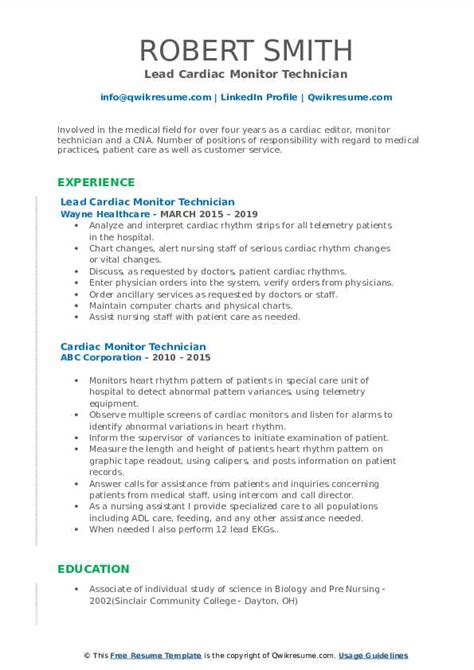
To become a cardiac technician, you typically need to complete a post-secondary education program in cardiovascular technology or a related field. Here are some common education and training requirements:
- Associate’s degree: Many community colleges and vocational schools offer associate’s degree programs in cardiovascular technology that can be completed in two years.
- Bachelor’s degree: Some colleges and universities offer bachelor’s degree programs in cardiovascular technology or related fields that can be completed in four years.
- Certificate programs: Some hospitals and medical institutions offer certificate programs in cardiovascular technology that can be completed in one year or less.
- Professional certification: Many employers require cardiac technicians to be certified by a professional organization such as the American Registry of Diagnostic Medical Sonographers (ARDMS) or the Cardiovascular Credentialing International (CCI).
Salary Ranges
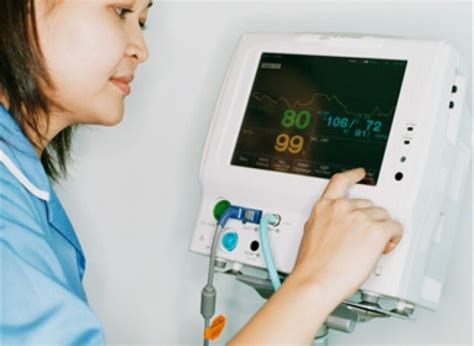
The salary range for cardiac technicians varies depending on factors such as location, employer, level of experience, and education. Here are some approximate salary ranges:
- Entry-level: 40,000 - 60,000 per year
- Experienced: 60,000 - 80,000 per year
- Senior-level: 80,000 - 100,000 per year
Growth Prospects

The demand for cardiac technicians is expected to grow significantly in the coming years due to the aging population and the increasing prevalence of cardiovascular disease. According to the Bureau of Labor Statistics (BLS), employment of cardiovascular technologists and technicians is projected to grow 10% from 2020 to 2030, faster than the average for all occupations.
Specializations

Cardiac technicians can specialize in various areas, including:
- Invasive cardiology: involves assisting physicians with procedures such as cardiac catheterizations and angioplasties
- Non-invasive cardiology: involves conducting non-invasive tests such as ECGs, echocardiograms, and stress tests
- Pediatric cardiology: involves working with children and adolescents with cardiovascular conditions
- Research: involves conducting research studies and collecting data on cardiovascular conditions and treatments
📝 Note: Cardiac technicians can also pursue advanced degrees and certifications to move into leadership positions or start their own businesses.
Work Environment

Cardiac technicians typically work in hospitals, clinics, and medical offices. They may also work in research institutions, universities, and medical device companies. The work environment can be fast-paced and dynamic, with cardiac technicians working closely with patients, physicians, and other healthcare professionals.
Conclusion
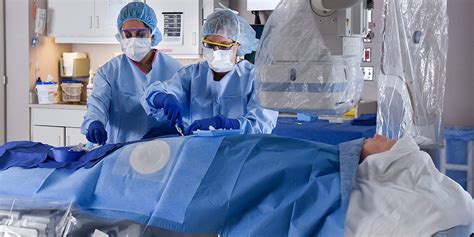
A career as a cardiac technician can be rewarding and challenging, offering opportunities for growth and advancement. With the right education and training, cardiac technicians can play a critical role in the diagnosis and treatment of cardiovascular disease, improving patient outcomes and saving lives.
What is the average salary for a cardiac technician?

+
The average salary for a cardiac technician is around 60,000 per year, although salaries can range from 40,000 to over $100,000 depending on factors such as location, employer, and level of experience.
What education and training do I need to become a cardiac technician?
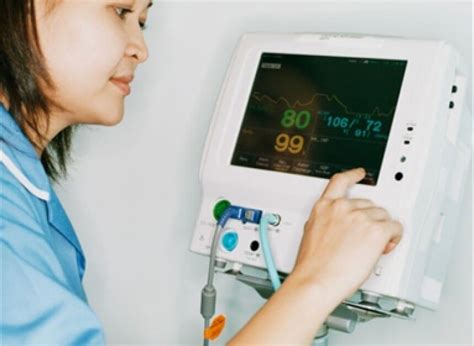
+
To become a cardiac technician, you typically need to complete a post-secondary education program in cardiovascular technology or a related field, such as an associate’s degree or bachelor’s degree. Many employers also require professional certification.
What are the job responsibilities of a cardiac technician?

+
Cardiac technicians conduct non-invasive tests, prepare patients for tests and procedures, operate and maintain medical equipment, analyze test results, and report any abnormalities to physicians. They may also assist physicians with procedures and maintain patient records.



